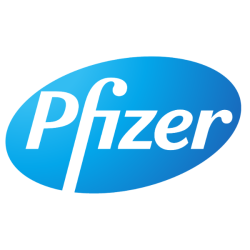ABBV

AbbVie Inc.
ABBV
(2.0)180,36 USD
11.05% ROA
65.72% ROE
63.95x PER
340.921.283.400,00 USD
1042.11% DER
3.18% Yield
9.22% NPM
AbbVie Inc. Stock Analysis
AbbVie Inc. Fundamental Analysis
Fundamental analysis in stock investing is like studying the foundation of a house before buying it. It involves looking at a company's financial health, like its earnings, assets, and debts, to determine if it's a good investment based on its fundamental strength and potential for growth.
| # | Analysis | Rating |
|---|---|---|
| 1 |
ROE
ROE surpassing expectations (58.5%) highlights strong profitability and efficient use of shareholders' equity, making it an appealing investment prospect. |
|
| 2 |
ROA
This stock has a great ability to make a lot of money from the things it owns, which makes it a really good investment for smart investors. |
|
| 3 |
Dividend Growth
Investors can be encouraged by the company's strong dividend growth over the past five years, highlighting its ability to generate consistent returns and provide an attractive investment opportunity. |
|
| 4 |
Dividend
The company's consistent dividend payments over the past three years indicate a strong commitment to delivering returns to investors. |
|
| 5 |
Buffet Intrinsic Value
The company's stock seems undervalued (1.009) by Warren Buffett's formula, indicating a promising investment opportunity as its intrinsic value exceeds the market price. |
|
| 6 |
PBV
The stock's elevated P/BV ratio (18.99x) raises concerns about its overvaluation, making it an imprudent choice for investors seeking value. |
|
| 7 |
DER
The stock is burdened with a heavy load of debt (474%), making it financially unstable and potentially risky for investors. |
|
| 8 |
Revenue Growth
Company has experienced no growth in revenue over the past three years, suggesting limited profitability and making it a less desirable investment opportunity. |
|
| 9 |
Net Profit Growth
Over the past five years, this company's net profit has failed to exhibit any growth, indicating a stagnant financial performance and making it a less favorable choice for potential investors. |
|
| 10 |
Assets Growth
Company's revenue has remained stagnant over the past three years, indicating a lack of growth and making it a less favorable option. |
|
| 11 |
Graham Number
The company's Graham number indicates that it is overvalued compared to its stock price, suggesting a potentially unfavorable investment opportunity. |
AbbVie Inc. Technical Analysis
Technical analysis in stock investing is like reading the patterns on a weather map to predict future weather conditions. It involves studying past stock price movements and trading volumes to make predictions about where a stock's price might go next, without necessarily looking at the company's financial health.
| # | Analysis | Recommendation |
|---|---|---|
| 1 | Awesome Oscillator | Hold |
| 2 | MACD | Buy |
| 3 | RSI | Hold |
| 4 | Stoch RSI | Sell |
AbbVie Inc. Price Chart
Financial Statements
Financial statements are like report cards for companies. They show how much money a company makes (income statement), what it owns and owes (balance sheet), and where it spends its money (cash flow statement), helping stock investors understand if a company is healthy and worth investing in.
Income Statements
An income statement for a company is like a scoreboard for its profits and losses. It shows how much money the company made (revenue) and how much it spent to make that money (expenses), helping stock investors see if a company is making a profit or not.
Revenue in stock investing is the total amount of money a company earns from its sales, and it's a key factor that investors consider to assess a company's financial performance and growth potential.
| Year | Revenue | Growth |
|---|---|---|
| 2009 | 14.214.196.000 | |
| 2010 | 15.638.000.000 | 9.1% |
| 2011 | 17.443.951.000 | 10.35% |
| 2012 | 18.380.000.000 | 5.09% |
| 2013 | 18.790.000.000 | 2.18% |
| 2014 | 19.960.000.000 | 5.86% |
| 2015 | 22.859.000.000 | 12.68% |
| 2016 | 25.638.000.000 | 10.84% |
| 2017 | 28.216.000.000 | 9.14% |
| 2018 | 32.753.000.000 | 13.85% |
| 2019 | 33.266.000.000 | 1.54% |
| 2020 | 45.804.000.000 | 27.37% |
| 2021 | 56.197.000.000 | 18.49% |
| 2022 | 58.054.000.000 | 3.2% |
| 2023 | 55.708.000.000 | -4.21% |
| 2023 | 54.318.000.000 | -2.56% |
| 2024 | 57.848.000.000 | 6.1% |
Research and Development Expenses are the costs a company incurs to create and improve its products or services, which can be important for investors to evaluate a company's innovation and potential for future growth.
| Year | Research and Development Expenses | Growth |
|---|---|---|
| 2009 | 1.707.440.000 | |
| 2010 | 2.495.000.000 | 31.57% |
| 2011 | 2.617.506.000 | 4.68% |
| 2012 | 2.778.000.000 | 5.78% |
| 2013 | 2.855.000.000 | 2.7% |
| 2014 | 3.297.000.000 | 13.41% |
| 2015 | 4.285.000.000 | 23.06% |
| 2016 | 4.366.000.000 | 1.86% |
| 2017 | 4.982.000.000 | 12.36% |
| 2018 | 10.329.000.000 | 51.77% |
| 2019 | 6.407.000.000 | -61.21% |
| 2020 | 6.557.000.000 | 2.29% |
| 2021 | 7.084.000.000 | 7.44% |
| 2022 | 6.510.000.000 | -8.82% |
| 2023 | 6.892.000.000 | 5.54% |
| 2023 | 8.453.000.000 | 18.47% |
| 2024 | 7.668.000.000 | -10.24% |
General and Administrative Expenses are the costs a company incurs to run its day-to-day operations, such as office rent, salaries, and utilities, which investors consider to understand a company's overall efficiency and management effectiveness.
| Year | General and Administrative Expenses | Growth |
|---|---|---|
| 2009 | 3.348.572.000 | |
| 2010 | 3.820.000.000 | 12.34% |
| 2011 | 5.893.820.000 | 35.19% |
| 2012 | 4.989.000.000 | -18.14% |
| 2013 | 5.352.000.000 | 6.78% |
| 2014 | 7.724.000.000 | 30.71% |
| 2015 | 6.387.000.000 | -20.93% |
| 2016 | 5.855.000.000 | -9.09% |
| 2017 | 6.275.000.000 | 6.69% |
| 2018 | 7.399.000.000 | 15.19% |
| 2019 | 5.842.000.000 | -26.65% |
| 2020 | 9.499.000.000 | 38.5% |
| 2021 | 10.249.000.000 | 7.32% |
| 2022 | 13.260.000.000 | 22.71% |
| 2023 | 0 | 0% |
| 2023 | 10.704.000.000 | 100% |
| 2024 | 0 | 0% |
EBITDA stands for Earnings Before Interest, Taxes, Depreciation, and Amortization. It is a measure that helps stock investors analyze a company's profitability by looking at its earnings without considering certain expenses. This helps to get a clearer picture of the company's financial performance and its ability to generate cash flow.
| Year | EBITDA | Growth |
|---|---|---|
| 2009 | 6.647.809.000 | |
| 2010 | 6.020.000.000 | -10.43% |
| 2011 | 4.940.721.000 | -21.84% |
| 2012 | 6.979.000.000 | 29.21% |
| 2013 | 6.914.000.000 | -0.94% |
| 2014 | 6.286.000.000 | -9.99% |
| 2015 | 9.692.000.000 | 35.14% |
| 2016 | 10.812.000.000 | 10.36% |
| 2017 | 11.774.000.000 | 8.17% |
| 2018 | 13.688.000.000 | 13.98% |
| 2019 | 16.264.000.000 | 15.84% |
| 2020 | 21.148.000.000 | 23.09% |
| 2021 | 28.280.000.000 | 25.22% |
| 2022 | 31.424.000.000 | 10.01% |
| 2023 | 9.768.000.000 | -221.7% |
| 2023 | 17.308.000.000 | 43.56% |
| 2024 | 20.332.000.000 | 14.87% |
Gross profit is the money a company makes from selling its products or services after subtracting the cost of producing or providing them, and it is an important measure for investors to understand a company's profitability.
| Year | Gross Profit | Growth |
|---|---|---|
| 2009 | 10.157.806.000 | |
| 2010 | 11.345.000.000 | 10.46% |
| 2011 | 12.804.558.000 | 11.4% |
| 2012 | 13.872.000.000 | 7.69% |
| 2013 | 14.209.000.000 | 2.37% |
| 2014 | 15.534.000.000 | 8.53% |
| 2015 | 18.359.000.000 | 15.39% |
| 2016 | 19.805.000.000 | 7.3% |
| 2017 | 21.176.000.000 | 6.47% |
| 2018 | 25.035.000.000 | 15.41% |
| 2019 | 25.827.000.000 | 3.07% |
| 2020 | 30.417.000.000 | 15.09% |
| 2021 | 38.751.000.000 | 21.51% |
| 2022 | 40.640.000.000 | 4.65% |
| 2023 | 29.768.000.000 | -36.52% |
| 2023 | 33.903.000.000 | 12.2% |
| 2024 | 49.144.000.000 | 31.01% |
Net income in stock investing is like the money a company actually gets to keep as profit after paying all its bills, and it's an important measure to understand how well a company is doing financially.
| Year | Net Profit | Growth |
|---|---|---|
| 2009 | 4.636.515.000 | |
| 2010 | 4.178.000.000 | -10.97% |
| 2011 | 3.433.128.000 | -21.7% |
| 2012 | 5.275.000.000 | 34.92% |
| 2013 | 4.128.000.000 | -27.79% |
| 2014 | 1.774.000.000 | -132.69% |
| 2015 | 5.144.000.000 | 65.51% |
| 2016 | 5.953.000.000 | 13.59% |
| 2017 | 5.309.000.000 | -12.13% |
| 2018 | 5.687.000.000 | 6.65% |
| 2019 | 7.882.000.000 | 27.85% |
| 2020 | 4.616.000.000 | -70.75% |
| 2021 | 11.542.000.000 | 60.01% |
| 2022 | 11.836.000.000 | 2.48% |
| 2023 | 7.112.000.000 | -66.42% |
| 2023 | 4.863.000.000 | -46.25% |
| 2024 | 5.480.000.000 | 11.26% |
EPS, or earnings per share, is a measure that shows how much profit a company has earned for each outstanding share of its stock, and it is important for stock investors as it helps understand the profitability of a company and compare it with other companies in the market.
| Year | Earning per Share (EPS) | Growth |
|---|---|---|
| 2009 | 3 | |
| 2010 | 3 | 0% |
| 2011 | 2 | 0% |
| 2012 | 3 | 33.33% |
| 2013 | 3 | -50% |
| 2014 | 1 | -100% |
| 2015 | 3 | 66.67% |
| 2016 | 4 | 0% |
| 2017 | 3 | 0% |
| 2018 | 4 | 0% |
| 2019 | 5 | 40% |
| 2020 | 3 | -150% |
| 2021 | 6 | 66.67% |
| 2022 | 7 | 0% |
| 2023 | 4 | -50% |
| 2023 | 3 | -100% |
| 2024 | 3 | 33.33% |
Cashflow Statements
Cashflow statements show the movement of money in and out of a company, helping stock investors understand how much money a company makes and spends. By examining cashflow statements, investors can assess if a company is generating enough cash to pay its bills, invest in growth, and provide returns to stockholders.
Free cash flow is the leftover cash that a company generates after covering its operating expenses and capital expenditures, which is important for stock investors as it shows how much money a company has available to invest in growth, pay dividends, or reduce debt.
| Year | Free Cashflow | Growth |
|---|---|---|
| 2009 | 5.054.771.000 | |
| 2010 | 4.528.000.000 | -11.63% |
| 2011 | 5.891.445.000 | 23.14% |
| 2012 | 6.012.000.000 | 2.01% |
| 2013 | 5.776.000.000 | -4.09% |
| 2014 | 2.937.000.000 | -96.66% |
| 2015 | 7.003.000.000 | 58.06% |
| 2016 | 6.562.000.000 | -6.72% |
| 2017 | 9.431.000.000 | 30.42% |
| 2018 | 12.789.000.000 | 26.26% |
| 2019 | 12.772.000.000 | -0.13% |
| 2020 | 16.790.000.000 | 23.93% |
| 2021 | 21.990.000.000 | 23.65% |
| 2022 | 24.248.000.000 | 9.31% |
| 2023 | 7.355.000.000 | -229.68% |
| 2023 | 22.062.000.000 | 66.66% |
| 2024 | 2.030.000.000 | -986.8% |
Operating cash flow represents the cash generated or consumed by a company's day-to-day operations, excluding external investing or financing activities, and is crucial for stock investors as it shows how much cash a company is generating from its core business operations.
| Year | Operating Cashflow | Growth |
|---|---|---|
| 2009 | 5.367.336.000 | |
| 2010 | 4.976.000.000 | -7.86% |
| 2011 | 6.246.960.000 | 20.35% |
| 2012 | 6.345.000.000 | 1.55% |
| 2013 | 6.267.000.000 | -1.24% |
| 2014 | 3.549.000.000 | -76.58% |
| 2015 | 7.535.000.000 | 52.9% |
| 2016 | 7.041.000.000 | -7.02% |
| 2017 | 9.960.000.000 | 29.31% |
| 2018 | 13.427.000.000 | 25.82% |
| 2019 | 13.324.000.000 | -0.77% |
| 2020 | 17.588.000.000 | 24.24% |
| 2021 | 22.777.000.000 | 22.78% |
| 2022 | 24.943.000.000 | 8.68% |
| 2023 | 7.574.000.000 | -229.32% |
| 2023 | 22.839.000.000 | 66.84% |
| 2024 | 2.271.000.000 | -905.68% |
Capex, short for capital expenditures, refers to the money a company spends on acquiring or upgrading tangible assets like buildings, equipment, or technology, which is important for stock investors as it indicates how much a company is investing in its infrastructure to support future growth and profitability.
| Year | Capital Expenditure | Growth |
|---|---|---|
| 2009 | 312.565.000 | |
| 2010 | 448.000.000 | 30.23% |
| 2011 | 355.515.000 | -26.01% |
| 2012 | 333.000.000 | -6.76% |
| 2013 | 491.000.000 | 32.18% |
| 2014 | 612.000.000 | 19.77% |
| 2015 | 532.000.000 | -15.04% |
| 2016 | 479.000.000 | -11.06% |
| 2017 | 529.000.000 | 9.45% |
| 2018 | 638.000.000 | 17.08% |
| 2019 | 552.000.000 | -15.58% |
| 2020 | 798.000.000 | 30.83% |
| 2021 | 787.000.000 | -1.4% |
| 2022 | 695.000.000 | -13.24% |
| 2023 | 219.000.000 | -217.35% |
| 2023 | 777.000.000 | 71.81% |
| 2024 | 241.000.000 | -222.41% |
Balance Sheet
Balance sheets provide a snapshot of a company's financial health and its assets (such as cash, inventory, and property) and liabilities (like debts and obligations) at a specific point in time. For stock investors, balance sheets help assess the company's overall worth and evaluate its ability to meet financial obligations and support future growth.
Equity refers to the ownership interest or stake that shareholders have in a company, representing their claim on its assets and earnings after all debts and liabilities are paid.
| Year | Equity | Growth |
|---|---|---|
| 2010 | 15.702.999.000 | |
| 2011 | 12.223.713.000 | -28.46% |
| 2012 | 3.363.000.000 | -263.48% |
| 2013 | 4.492.000.000 | 25.13% |
| 2014 | 1.742.000.000 | -157.86% |
| 2015 | 3.945.000.000 | 55.84% |
| 2016 | 4.636.000.000 | 14.91% |
| 2017 | 5.097.000.000 | 9.04% |
| 2018 | -8.446.000.000 | 160.35% |
| 2019 | -8.172.000.000 | -3.35% |
| 2020 | 13.097.000.000 | 162.4% |
| 2021 | 15.436.000.000 | 15.15% |
| 2022 | 17.287.000.000 | 10.71% |
| 2023 | 10.397.000.000 | -66.27% |
| 2023 | 12.129.000.000 | 14.28% |
| 2024 | 6.821.000.000 | -77.82% |
Assets represent the valuable resources that a company owns, such as cash, inventory, property, and equipment, and understanding a company's assets helps investors assess its value and potential for generating future profits.
| Year | Assets | Growth |
|---|---|---|
| 2010 | 21.134.705.000 | |
| 2011 | 19.657.166.000 | -7.52% |
| 2012 | 27.008.000.000 | 27.22% |
| 2013 | 29.198.000.000 | 7.5% |
| 2014 | 27.547.000.000 | -5.99% |
| 2015 | 53.050.000.000 | 48.07% |
| 2016 | 66.099.000.000 | 19.74% |
| 2017 | 70.786.000.000 | 6.62% |
| 2018 | 59.352.000.000 | -19.26% |
| 2019 | 89.115.000.000 | 33.4% |
| 2020 | 150.565.000.000 | 40.81% |
| 2021 | 146.529.000.000 | -2.75% |
| 2022 | 138.805.000.000 | -5.56% |
| 2023 | 134.711.000.000 | -3.04% |
| 2023 | 136.221.000.000 | 1.11% |
| 2024 | 141.937.000.000 | 4.03% |
Liabilities refer to the financial obligations or debts that a company owes to creditors or external parties, and understanding a company's liabilities is important for investors as it helps assess the company's financial risk and ability to meet its obligations.
| Year | Liabilities | Growth |
|---|---|---|
| 2010 | 5.431.706.000 | |
| 2011 | 7.433.453.000 | 26.93% |
| 2012 | 23.645.000.000 | 68.56% |
| 2013 | 24.706.000.000 | 4.29% |
| 2014 | 25.805.000.000 | 4.26% |
| 2015 | 49.105.000.000 | 47.45% |
| 2016 | 61.463.000.000 | 20.11% |
| 2017 | 65.689.000.000 | 6.43% |
| 2018 | 67.798.000.000 | 3.11% |
| 2019 | 97.287.000.000 | 30.31% |
| 2020 | 137.468.000.000 | 29.23% |
| 2021 | 131.093.000.000 | -4.86% |
| 2022 | 121.518.000.000 | -7.88% |
| 2023 | 124.314.000.000 | 2.25% |
| 2023 | 124.092.000.000 | -0.18% |
| 2024 | 135.116.000.000 | 8.16% |
AbbVie Inc. Financial Ratio (TTM)
Valuation Metrics
- Revenue per Share
- 31.09
- Net Income per Share
- 3.02
- Price to Earning Ratio
- 63.95x
- Price To Sales Ratio
- 6.2x
- POCF Ratio
- 18.32
- PFCF Ratio
- 19.17
- Price to Book Ratio
- 50.37
- EV to Sales
- 7.24
- EV Over EBITDA
- 23.76
- EV to Operating CashFlow
- 21.38
- EV to FreeCashFlow
- 22.41
- Earnings Yield
- 0.02
- FreeCashFlow Yield
- 0.05
- Market Cap
- 340,92 Bil.
- Enterprise Value
- 398,43 Bil.
- Graham Number
- 16.13
- Graham NetNet
- -62.78
Income Statement Metrics
- Net Income per Share
- 3.02
- Income Quality
- 3.5
- ROE
- 0.57
- Return On Assets
- 0.04
- Return On Capital Employed
- 0.14
- Net Income per EBT
- 0.71
- EBT Per Ebit
- 0.52
- Ebit per Revenue
- 0.25
- Effective Tax Rate
- 0.29
Margins
- Sales, General, & Administrative to Revenue
- 0.03
- Research & Developement to Revenue
- 0.14
- Stock Based Compensation to Revenue
- 0.01
- Gross Profit Margin
- 0.77
- Operating Profit Margin
- 0.25
- Pretax Profit Margin
- 0.13
- Net Profit Margin
- 0.09
Dividends
- Dividend Yield
- 0.03
- Dividend Yield %
- 3.18
- Payout Ratio
- 2.02
- Dividend Per Share
- 6.13
Operating Metrics
- Operating Cashflow per Share
- 10.54
- Free CashFlow per Share
- 10.05
- Capex to Operating CashFlow
- 0.05
- Capex to Revenue
- 0.02
- Capex to Depreciation
- 0.1
- Return on Invested Capital
- 0.15
- Return on Tangible Assets
- 0.11
- Days Sales Outstanding
- 77.8
- Days Payables Outstanding
- 706.79
- Days of Inventory on Hand
- 101.76
- Receivables Turnover
- 4.69
- Payables Turnover
- 0.52
- Inventory Turnover
- 3.59
- Capex per Share
- 0.49
Balance Sheet
- Cash per Share
- 7,44
- Book Value per Share
- 3,86
- Tangible Book Value per Share
- -49.07
- Shareholders Equity per Share
- 3.83
- Interest Debt per Share
- 41.02
- Debt to Equity
- 10.42
- Debt to Assets
- 0.5
- Net Debt to EBITDA
- 3.43
- Current Ratio
- 0.81
- Tangible Asset Value
- -86,81 Bil.
- Net Current Asset Value
- -101,30 Bil.
- Invested Capital
- 90553000000
- Working Capital
- -8,10 Bil.
- Intangibles to Total Assets
- 0.66
- Average Receivables
- 11,84 Bil.
- Average Payables
- 30,28 Bil.
- Average Inventory
- 4231500000
- Debt to Market Cap
- 0.21
Dividends
Dividends in stock investing are like rewards that companies give to their shareholders. They are a portion of the company's profits distributed to investors, typically in the form of cash payments, as a way for them to share in the company's success.
| Year | Dividends | Growth |
|---|---|---|
| 2013 | 2 | |
| 2014 | 2 | 0% |
| 2015 | 2 | 50% |
| 2016 | 2 | 0% |
| 2017 | 3 | 0% |
| 2018 | 4 | 33.33% |
| 2019 | 4 | 25% |
| 2020 | 5 | 0% |
| 2021 | 5 | 20% |
| 2022 | 6 | 0% |
| 2023 | 6 | 0% |
| 2024 | 6 | 16.67% |
AbbVie Inc. Profile
About AbbVie Inc.
AbbVie Inc. discovers, develops, manufactures, and sells pharmaceuticals in the worldwide. The company offers HUMIRA, a therapy administered as an injection for autoimmune and intestinal Behçet's diseases; SKYRIZI to treat moderate to severe plaque psoriasis in adults; RINVOQ, a JAK inhibitor for the treatment of moderate to severe active rheumatoid arthritis in adult patients; IMBRUVICA to treat adult patients with chronic lymphocytic leukemia (CLL), small lymphocytic lymphoma (SLL), and VENCLEXTA, a BCL-2 inhibitor used to treat adults with CLL or SLL; and MAVYRET to treat patients with chronic HCV genotype 1-6 infection. It also provides CREON, a pancreatic enzyme therapy for exocrine pancreatic insufficiency; Synthroid used in the treatment of hypothyroidism; Linzess/Constella to treat irritable bowel syndrome with constipation and chronic idiopathic constipation; Lupron for the palliative treatment of advanced prostate cancer, endometriosis and central precocious puberty, and patients with anemia caused by uterine fibroids; and Botox therapeutic. In addition, the company offers ORILISSA, a nonpeptide small molecule gonadotropin-releasing hormone antagonist for women with moderate to severe endometriosis pain; Duopa and Duodopa, a levodopa-carbidopa intestinal gel to treat Parkinson's disease; Lumigan/Ganfort, a bimatoprost ophthalmic solution for the reduction of elevated intraocular pressure (IOP) in patients with open angle glaucoma (OAG) or ocular hypertension; Ubrelvy to treat migraine with or without aura in adults; Alphagan/ Combigan, an alpha-adrenergic receptor agonist for the reduction of IOP in patients with OAG; and Restasis, a calcineurin inhibitor immunosuppressant to increase tear production, as well as other eye care products. AbbVie Inc. has a research collaboration with Dragonfly Therapeutics, Inc. The company was incorporated in 2012 and is headquartered in North Chicago, Illinois.
- CEO
- Mr. Robert A. Michael
- Employee
- 50.000
- Address
-
1 North Waukegan Road
North Chicago, 60064-6400
AbbVie Inc. Executives & BODs
| # | Name | Age |
|---|---|---|
| 1 |
Dr. Roopal Thakkar M.D. Executive Vice President of Research and Development & Chief Scientific Officer |
70 |
| 2 |
Mr. Perry C. Siatis Executive Vice President, General Counsel & Secretary |
70 |
| 3 |
Mr. Sanjay Narayan Senior Vice President, Chief Ethics, Compliance Officer & Allergan Aesthetic Legal |
70 |
| 4 |
Mr. Jeffrey Ryan Stewart Executive Vice President & Chief Commercial Officer |
70 |
| 5 |
Dr. Azita Saleki-Gerhardt Ph.D. Executive Vice President & Chief Operating Officer |
70 |
| 6 |
Ms. Elizabeth Shea Senior Vice President of Investor Relations |
70 |
| 7 |
Mr. Timothy J. Richmond Executive Vice President & Chief Human Resources Officer |
70 |
| 8 |
Mr. Richard A. Gonzalez Executive Chairman |
70 |
| 9 |
Mr. Robert A. Michael Chief Executive Officer & Director |
70 |
| 10 |
Mr. Scott T. Reents Executive Vice President & Chief Financial Officer |
70 |






